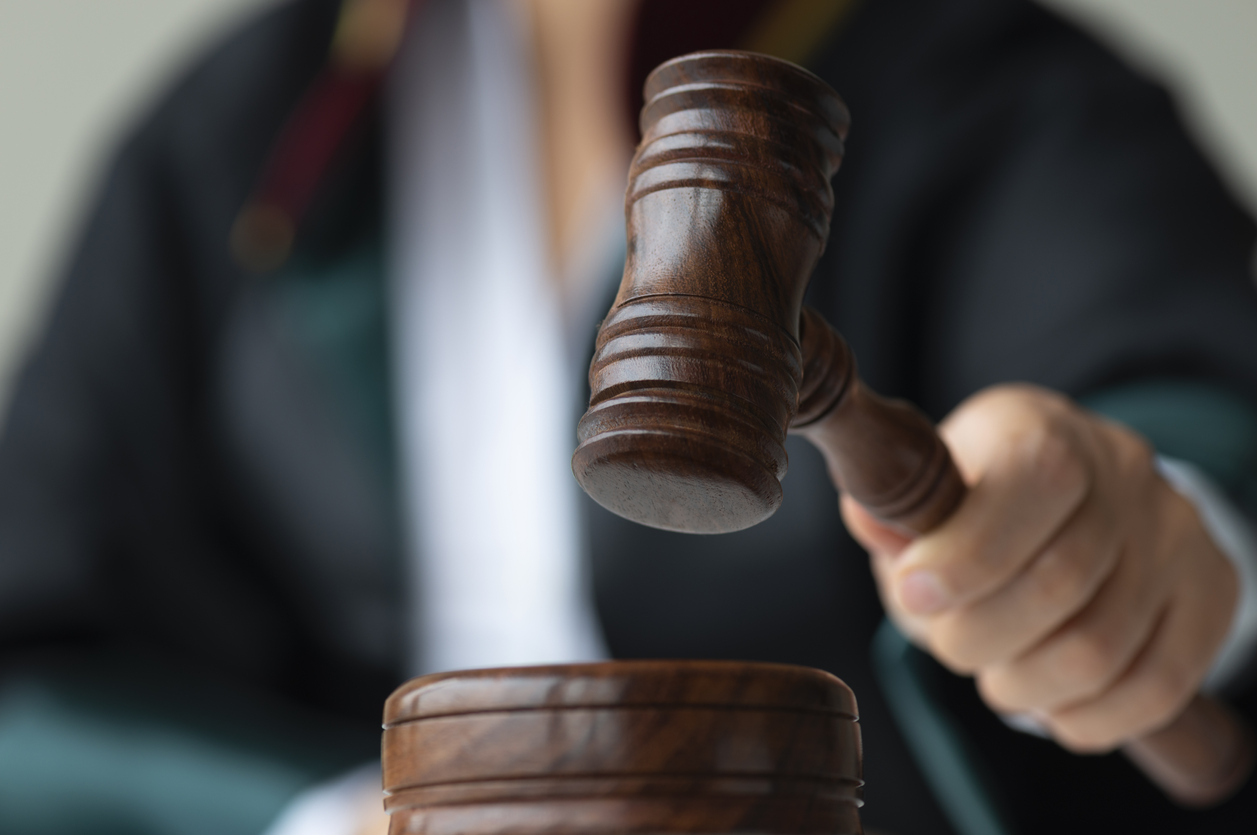In a recent legal development, a judge in Richmond, Virginia, has rejected an attempt by the state attorney general’s office to dismiss a defamation lawsuit valued at $1 million. The lawsuit was filed by Monique Miles, a former top deputy who claims she was coerced to leave her position due to her Facebook posts referring to the January 6 rioters as “patriots.”
Miles initiated the lawsuit against Virginia Attorney General Jason Miyares (R) and four of his staff members in August of the previous year. She alleges that her reputation suffered significant harm as a result of “false statements” made about her departure.
According to Miles, she was terminated from her role as deputy attorney general of the Government Operations and Transactions division, where she was responsible for overseeing election integrity matters. This termination allegedly stemmed from her Facebook posts made in a personal capacity, falsely asserting that Donald Trump had emerged victorious in the 2020 presidential election and referring to the individuals who stormed the U.S. Capitol on January 6, 2021, as “patriots.”
Miles claims that the attorney general’s office publicly characterized her termination as a voluntary resignation, stating that they had “parted ways” due to her alleged lack of transparency during the initial interview process. Consequently, Miles contends that this misrepresentation has led to the loss of clients.
Initially, the attorney general’s office filed a motion seeking the dismissal of the case. However, the court hearing that took place on March 30 resulted in Richmond Circuit Judge Bradley Cavedo overruling this motion, allowing the lawsuit to proceed.
While Miles had included Miyares, Chief Deputy Attorney General Charles Slemp III, Miyares’ Chief of Staff Darrell Jordan, Director of External Affairs Klarke Kilgore, and Director of Communications Victoria LaCivita as defendants in their official capacities, she withdrew her claims against them individually during the March 30 hearing.
Miles’ lawsuit provides a detailed account of her interactions with staff members within the attorney general’s office. She claims to have informed them promptly about an upcoming story in The Washington Post concerning her Facebook posts, including sharing screenshots of those posts.
One of her posts read, “News Flash: Patriots have stormed the Capitol. No surprise. The deep state has awoken the sleeping giant. Patriots are not taking this lying down. We are awake, ready, and will fight for our rights by any means necessary.”
The lawsuit further details various meetings, calls, messages, and emails in which Miles asserts she shared additional information gleaned from news reports, post-election lawsuits, legislative hearings, and election audits, leading her to edit some of the Facebook posts.
Miles also claims that she sent messages to Jordan, expressing her disapproval of the January 6 riot. Following a conversation in which she was informed that she had an opportunity to resign, Miles asserts that she maintained her innocence to the attorney general’s office. She ultimately surrendered her work identification and equipment, a gesture that the attorney general’s office interpreted as her resignation.
According to the lawsuit, LaCivita issued a statement to the media, alleging that Miles and the attorney general’s office had “parted ways” due to Miles’ lack of transparency during the initial interviews. Despite Miles’ alleged efforts to have the statement retracted, it was never rectified. As a result, she turned to the press to explain the reasons behind her termination.
The lawsuit seeks $1 million in damages and argues that Miles was offered a chance to resign but never officially did so. Additionally, Miles claims that the attorney general’s office was fully aware of her political views and did not inquire about her opinions on the 2020 election or the January 6 riot during her interview process.
6 riot during her interview process.
Miles’ lawsuit emphasizes that the defendants’ defamatory actions will have a long-lasting impact on her both emotionally, as she interacts with colleagues, and professionally, as she strives to rebuild her career. The complaint contends that the defendants’ statements were made with “actual malice,” indicating a reckless disregard for the truth.
In a court order dated May 4, Judge Cavedo determined that Miles had presented sufficient evidence to demonstrate transparency during her initial interviews. He also acknowledged that the attorney general’s office’s statement about her lack of transparency could be proven true or false. Moreover, Judge Cavedo ruled that Miles’ claim of losing clients as a result of the statement reached the level of “defamatory sting” required for a lawsuit.
In response to the judge’s decision, Victoria LaCivita, representing the attorney general’s office, stated that they had no comment. Back in August when the lawsuit was initially filed, LaCivita expressed confidence in the strength of the office’s legal position and vowed to vigorously defend against Miles’ claim for $1 million of taxpayer money.
Miles’ attorney, Steven Krieger, released a statement asserting that a jury trial would be scheduled “in the coming months.” Krieger highlighted the impact of the attorney general’s office’s comments on Miles’ professional reputation and described the lawsuit as an opportunity for her to clear her name and seek justice.
“OAG’s comments about Monique’s ‘lack of transparency’ were devastating and unfounded and furthermore feed into all the stereotypes about dishonest and untrustworthy attorneys,” Krieger stated. “Monique filed the pending lawsuit to clear her name, set the record straight, and provide her with the same justice that her law firm seeks for her clients.”
With the judge’s decision, the defamation lawsuit will proceed, allowing Monique Miles an opportunity to present her case and seek restitution for the alleged damage to her reputation. As the legal proceedings unfold, the case will undoubtedly draw attention as it delves into the intersection of personal social media expression, professional responsibilities, and the consequences of public statements made by high-ranking government officials.
The lawsuit has garnered significant attention due to its implications regarding the intersection of personal social media expression, professional responsibilities, and the consequences of public statements made by high-ranking government officials. As the legal proceedings continue, many individuals and legal experts are closely following the case, as it may set important precedents regarding freedom of speech, defamation, and the boundaries between personal and professional conduct in the digital age.
Furthermore, the lawsuit raises questions about the role of social media in the workplace and the potential impact of employees’ personal opinions on their professional lives. It brings to light the challenge faced by employers in navigating employees’ freedom of expression while maintaining their reputation and public image. The outcome of this case may have broader implications for employers and employees alike, prompting them to reassess their social media policies and practices to mitigate potential conflicts.
Additionally, the lawsuit highlights the contentious and divisive nature of political discourse in the United States. The events of January 6, 2021, have remained a polarizing topic, with strong emotions and differing interpretations surrounding the actions of those involved. The case underscores the challenges faced by individuals in expressing their political opinions while balancing the potential consequences of their statements in a highly charged and divided social climate.
As the legal proceedings progress, both parties will present their arguments, and a jury trial will be scheduled in the coming months. The trial will provide an opportunity for Monique Miles to present her evidence, including her interactions with the attorney general’s office and the alleged damage caused by their statements. The defense will have the chance to present their counterarguments and dispute the claims made by Miles.
The outcome of this lawsuit will not only impact the parties involved but may also shape future legal decisions regarding defamation, freedom of speech, and the responsibilities of public officials. As the case unfolds, it will continue to attract attention from legal professionals, media outlets, and individuals interested in the implications it carries for personal expression, professional reputation, and the boundaries of public discourse.


